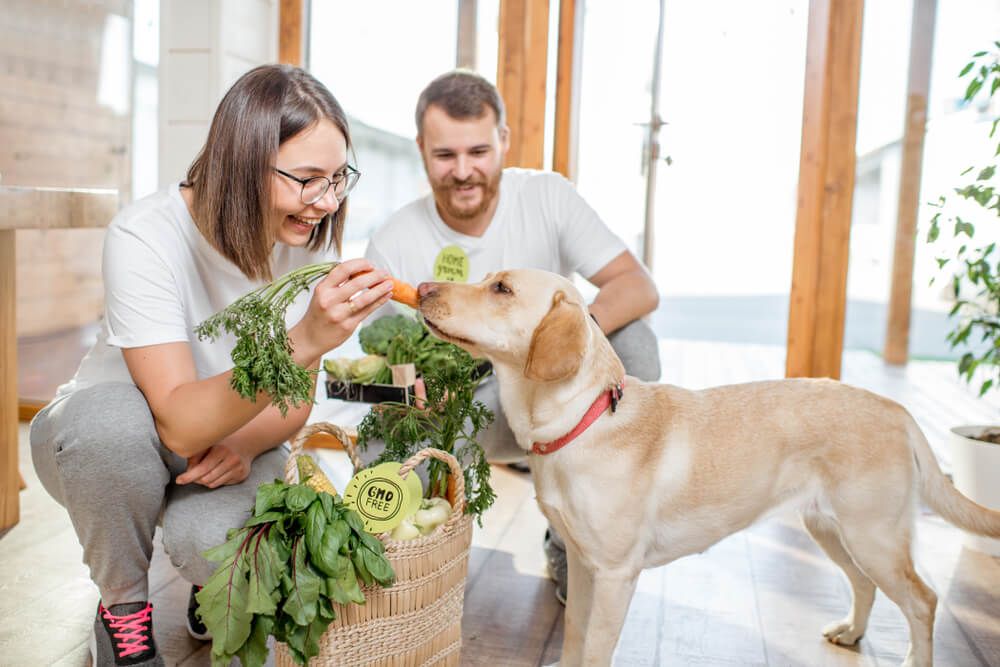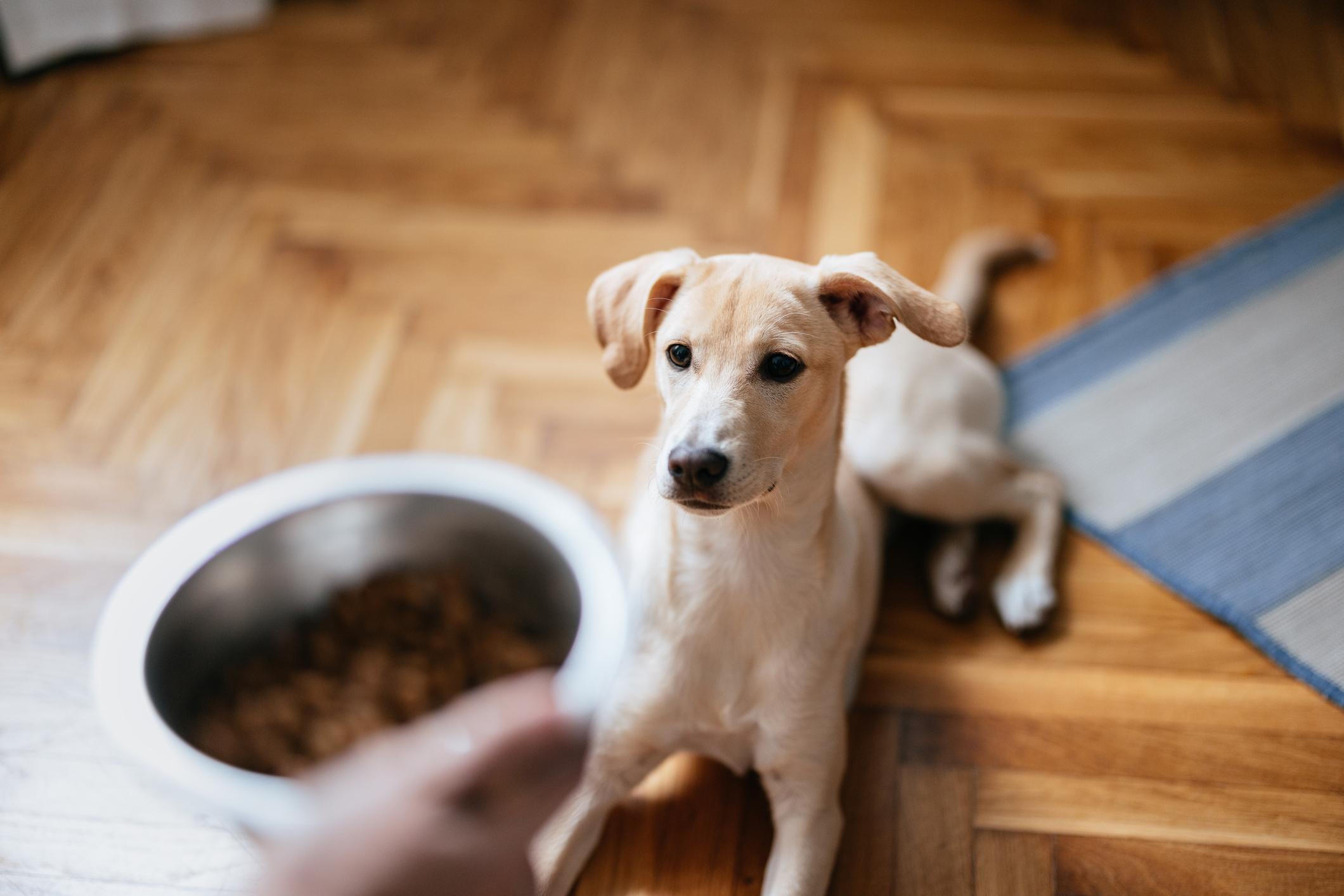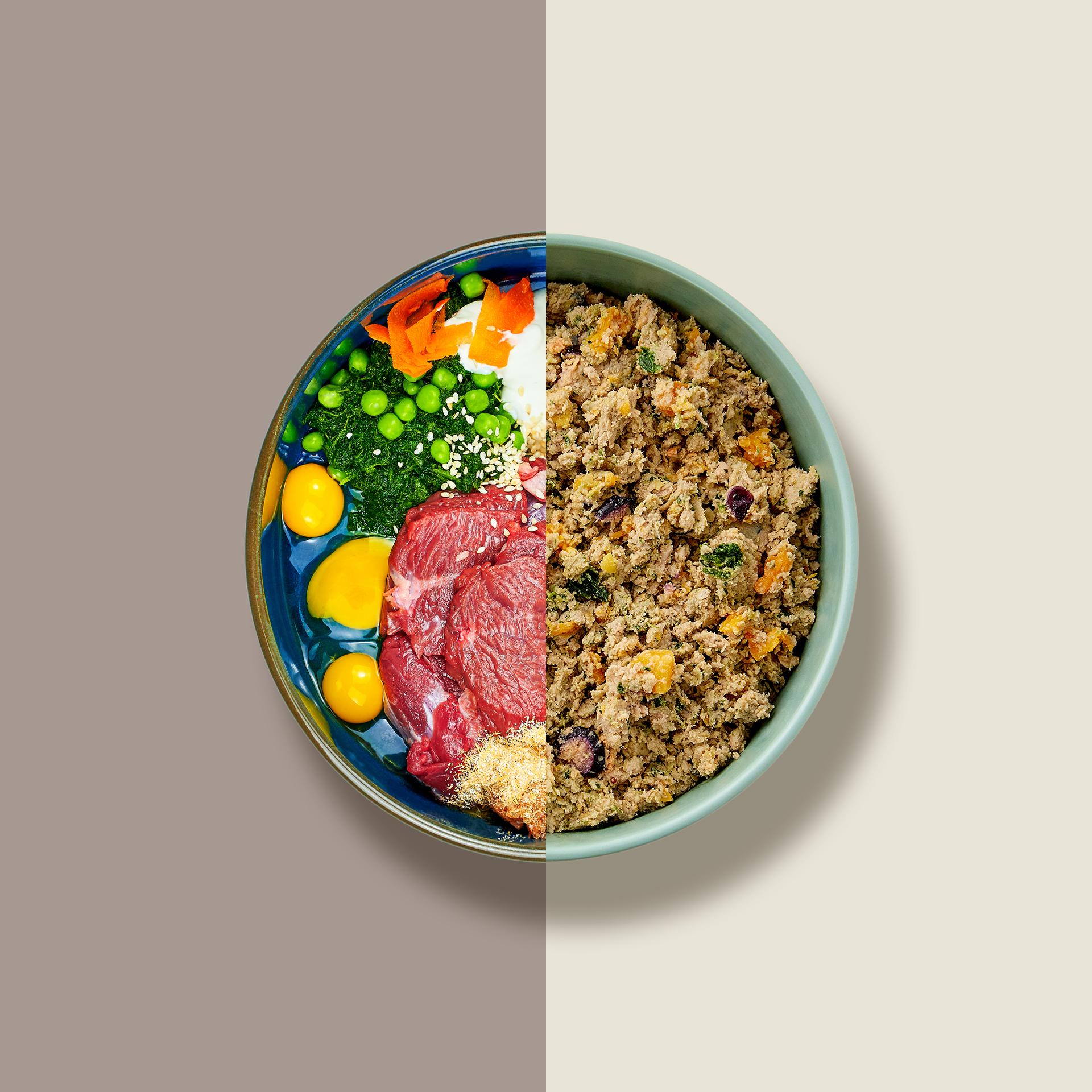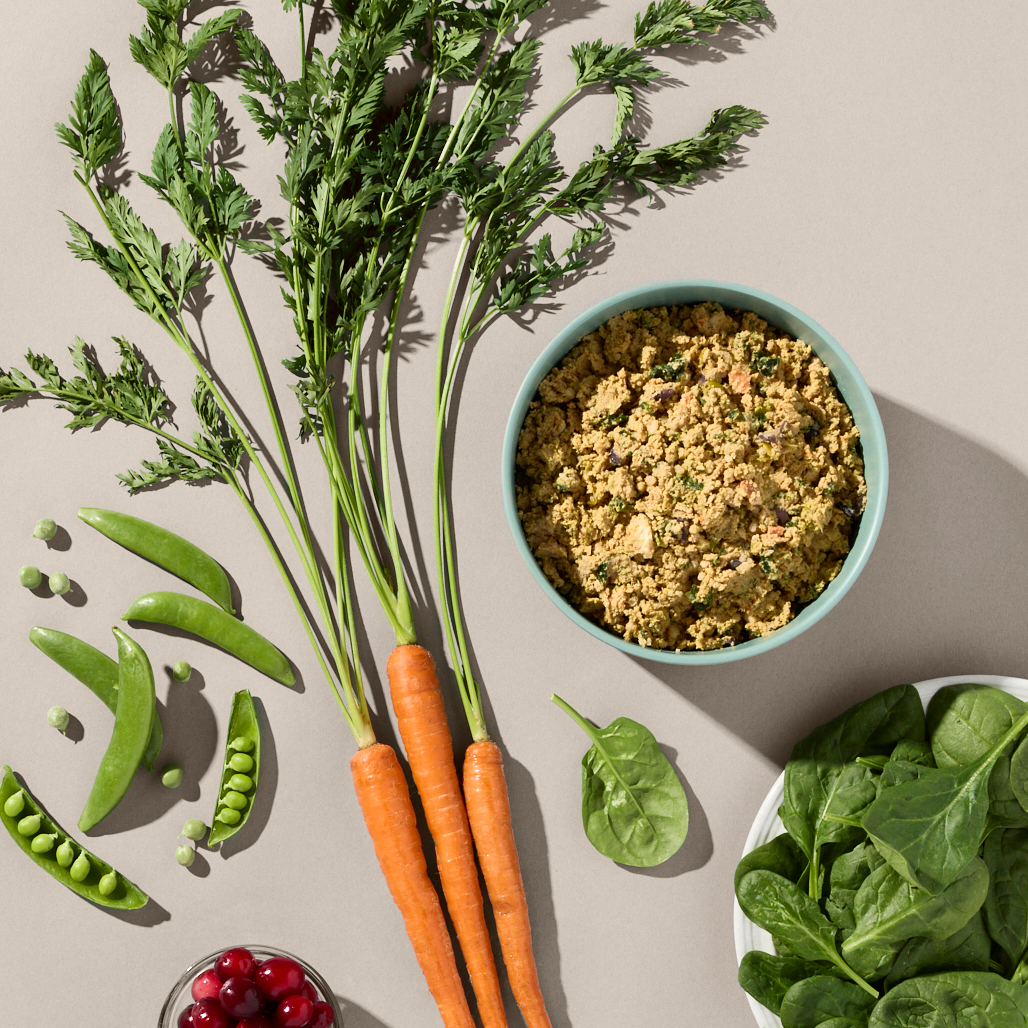Hey Ollie blog readers! We’re offering you an exclusive 60% OFF your starter box! Try now!
There’s no denying that vegetables are great for canines. We’re big fans of peas as a natural source of fiber for pups! And if you’re a vegetarian yourself, you might feel weird about dishing out meat on a daily basis. But can a plant-based diet really fulfill all of your pup’s nutritional needs?

Can Dogs Be Vegetarian?
Technically, yes. It’s possible for a dog to follow a vegetarian or even a vegan diet and survive. Unlike cats, dogs are not obligate carnivores. As omnivores, dogs have the ability to transform amino acids (the building blocks of protein), and these building blocks, specifically taurine and L-carnitine can be sourced from some vegetables.
Dogs are omnivores, so they can survive on a veggie diet—and there are certainly benefits to including ingredients like dark leafy greens in what they eat (i.e., swiss chard is good for the immune system). And yes, there are plant-based protein sources for pups, including lentils, eggs and quinoa.
But is Vegetarian Food Good for Dogs?
Just because dogs can survive on a vegetarian diet, doesn’t mean they’ll thrive. In fact, experts warn that the nutritional deficiencies in a vegetarian diet could lead to serious health problems for pets. Dogs can experience stunted growth, heart problems, skin problems, and low energy levels or lethargy. It’s very difficult for a veggie-only diet to retain the same balance and nutritional profile as one that contains meat.
And the scariest part, according to Gudrun Ravetz, former president of the British Veterinary Association, is that these health problems are often irreversible and can develop within mere months of a meat-free diet. Owners may not realize the problems before it’s too late.
Problems with feeding your pup a vegetarian diet
Missing nutrients
Vegetarian diets tend to lack amino acids, taurine and L-carnitine—without these, your dog’s heart could become large and eventually dysfunctional, says Justine Lee, toxicologist and vet specialist at the Animal Emergency & Referral Center of Minnesota. Other vitamins and minerals that are often missing include phosphorus and iron. It’s also harder for dogs to readily absorb the essential vitamins via plants versus meat because they contain cellulose.
Insufficient protein
Dogs have a relatively high protein requirement—and a bowl of greens isn’t going to cut it for them, even if you add beans or soy, Lee says. They do best with animal fats, proteins, amino acids, plus some greens. And while the veggies aren’t bad for them, it’s the omega-3 fatty acids and the taurine that’s really keeping your pup healthy, Lee says.
Inaccurate labeling
A 2015 study published in the Journal of the American Veterinary Medical Association found that most commercial vegetarian diets weren’t compliant with labeling regulations. “We were not surprised by the finding of amino acid adequacy in the diets,” says Jennifer Larson, associate professor of clinical nutrition at the Veterinary Medical Teaching Hospital at the University of California Davis. “However, we were surprised that so many of the diets evaluated had issues with appropriate labeling.”
Unbalanced diet
It’s very difficult to get the right ratio of proteins, vitamins and minerals into a vegetarian diet, and even if you do, your dog may refuse to eat it, Lee says. “From a taste aspect and from a quality of life, they’d prefer to eat meat,” she says. Since a meaty aroma is one of the things that often entices dogs to eat, they may not consume enough of a veggie only diet.
There are no guidelines for vegetarian diets right now, and health issues may arise over time that you can’t see immediately. If you decide you want to feed a vegittarian diet, monitor your dog’s meals with a nutritionist and your vet.
Need Another Reason to Avoid Making Your Dog a Vegetarian?
Dogs love meat! Show any dog a piece of beef and he will go wild with delight. It’s our job as pet parents to make our dogs as happy as possible, so is it fair to deny them an entire food group that they love? A balanced diet of meat protein and vegetables is the best (and frankly, easiest) way to get your dog all the essential nutrients he needs for a long, healthy and happy life.
The Ollie blog is devoted to helping pet parents lead healthier lives with their pups. If you want to learn more about our fresh, human-grade food, check out MyOllie.com.
Tagged As:

The nutrition your dog needs,
the food they want.

Enjoying our articles? Subscribe our Newsletters and get new articles directly to your inbox
You might also like
12 August 2025
5 MINS READ
Top 8 Allergens Hiding in Your Dog’s Bowl
As pup parents, we never want to see our dogs uncomfortable. When it comes to itching, swelling, and upset stomachs, the culprit may be in their bowl. Understanding the most common allergens and t…
by Ollie Pets
12 August 2025
5 MINS READ
Raw vs. Gently Cooked: Which Is Ideal for Your Pup?
As more pup parents seek the best fresh dog food for their companions, they may find themselves choosing between a raw diet and a fresh diet. While cases have been made for both options, let’s exa…
by Ollie Pets
12 August 2025
5 MINS READ
Why Human-Grade Ingredients Matter for Your Dog
A healthier, happier dog starts with the right food. That said, knowing which diet is best for your pup can be overwhelming at times. Understanding what human-grade means, why it matters, and how …
by Ollie Pets







